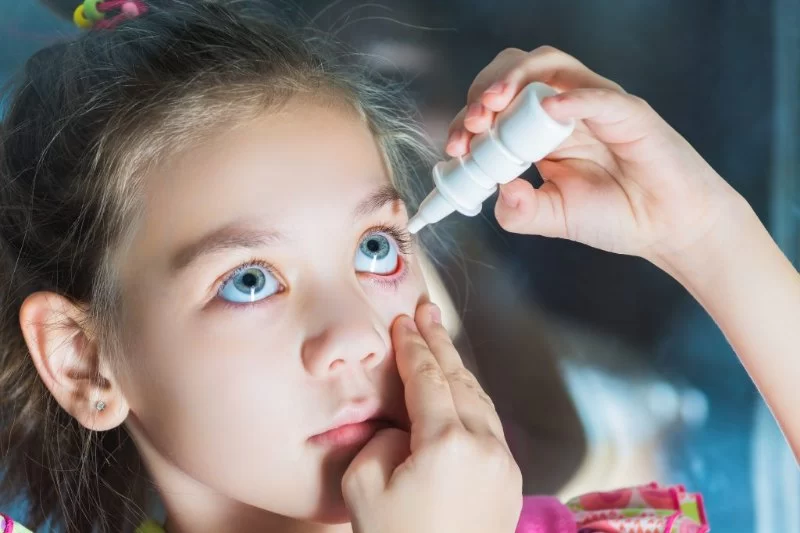
How to Treat Viral Eye Infections Effectively with Medications and Care
- - Understanding Viral Eye Infections
- - Common Types of Viral Eye Infections
- - Key Medications for Viral Eye Infections
- - At-Home Care Tips for Viral Eye Infections
- - When to See a Doctor for a Viral Eye Infection
- - Preventing Future Viral Eye Infections
1. Understanding Viral Eye Infections
Viral eye infections are common conditions caused by various viruses that affect the eyes, leading to symptoms such as redness, itching, watering, and discomfort. These infections can be highly contagious and are often spread through contact with infected individuals or surfaces. Knowing how to manage viral eye infections effectively can help you recover faster and prevent the spread to others.
1.1 How Viral Eye Infections Spread
Viral eye infections can spread easily through direct contact with infected eye discharge or contaminated objects. They are particularly common in environments like schools, daycare centers, and public transport, where individuals are in close contact.
2. Common Types of Viral Eye Infections
Several types of viral infections can affect the eyes, with the most common being conjunctivitis (pink eye), herpes simplex virus (HSV) infections, and adenovirus infections. Each type of infection requires specific care, but many can be treated effectively with proper medications and self-care practices.
2.1 Conjunctivitis (Pink Eye)
Conjunctivitis is one of the most prevalent viral eye infections. It occurs when the conjunctiva, the thin layer of tissue covering the white part of the eye and the inner eyelid, becomes inflamed. It can cause redness, itching, and discharge from the eyes. Conjunctivitis is often self-limiting and resolves on its own with appropriate care.
2.2 Herpes Simplex Virus (HSV) Infection
HSV infections can affect the cornea (the clear part of the eye) and cause pain, blurred vision, and sensitivity to light. This viral infection may require antiviral medication and careful monitoring to avoid complications like corneal scarring.
2.3 Adenovirus Infections
Adenoviruses are responsible for a significant number of viral eye infections, particularly in the form of viral conjunctivitis. Symptoms include watery eyes, redness, and swelling. In some cases, adenovirus infections can lead to more severe complications, including keratitis (inflammation of the cornea).
3. Key Medications for Viral Eye Infections
While viral eye infections often resolve on their own, specific medications can help alleviate symptoms, speed up recovery, and prevent further complications. Here are some common treatments used to manage viral eye infections:
3.1 Antiviral Medications
For more severe viral eye infections, such as those caused by herpes simplex virus, antiviral medications may be prescribed. These medications, such as acyclovir and valacyclovir, help reduce the severity and duration of the infection. In some cases, antiviral eye drops may be used directly on the eye.
3.2 Steroid Eye Drops
In certain cases, doctors may prescribe steroid eye drops to reduce inflammation and swelling caused by viral infections. However, these are typically used under strict medical supervision, as long-term use can cause side effects, including increased intraocular pressure.
3.3 Artificial Tears and Lubricating Drops
Artificial tears or lubricating eye drops can help soothe irritation and dryness caused by viral infections. These over-the-counter treatments help keep the eyes moist and comfortable as they heal.
4. At-Home Care Tips for Viral Eye Infections
Along with medications, certain at-home care practices can help reduce discomfort and speed up recovery from viral eye infections.
4.1 Maintain Eye Hygiene
Regularly clean your hands and avoid touching your eyes to prevent further irritation or spreading the infection to others. Use a clean tissue to wipe away discharge from your eyes and dispose of it immediately.
4.2 Apply Warm or Cold Compresses
Applying a warm compress to your eyes can soothe irritation and reduce inflammation. Alternatively, a cold compress can help reduce swelling and provide relief from discomfort.
4.3 Avoid Contact Lenses
If you wear contact lenses, it's important to avoid wearing them during a viral eye infection. Contacts can irritate the eyes further and increase the risk of spreading the infection.
5. When to See a Doctor for a Viral Eye Infection
While many viral eye infections improve with self-care, it’s important to seek medical attention in certain situations. If you experience severe pain, vision changes, or if the infection does not improve within a few days, it’s important to consult an eye care professional.
5.1 Persistent Symptoms
If your symptoms, such as redness, pain, or discharge, persist or worsen, it's time to see a doctor. Sometimes a bacterial infection can develop alongside a viral infection, requiring additional treatment.
5.2 Vision Problems
If you notice any changes in vision, such as blurred vision or light sensitivity, it’s important to get professional evaluation. Vision changes could indicate more severe complications, such as corneal involvement.
6. Preventing Future Viral Eye Infections
To reduce the risk of developing viral eye infections in the future, follow these simple steps:
6.1 Practice Good Hygiene
Wash your hands frequently and avoid touching your eyes with unwashed hands. This is one of the easiest ways to prevent the spread of viruses that cause eye infections.
6.2 Avoid Sharing Personal Items
Avoid sharing items such as towels, makeup, or eye drops with others, as these can carry viruses that lead to infections.
6.3 Keep Your Environment Clean
Regularly clean your environment, especially in places where the virus may be transmitted, such as public transport or crowded areas. Disinfecting commonly touched surfaces can also reduce the risk of transmission.
If you're dealing with a viral eye infection, it’s important to follow your healthcare provider’s instructions carefully. For more information on how to effectively treat and manage viral eye infections, visit Eye Docs for expert advice and the best products.








